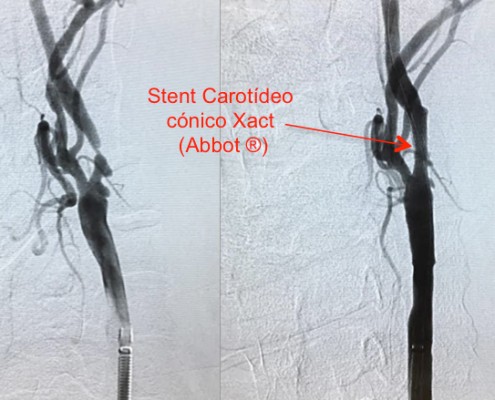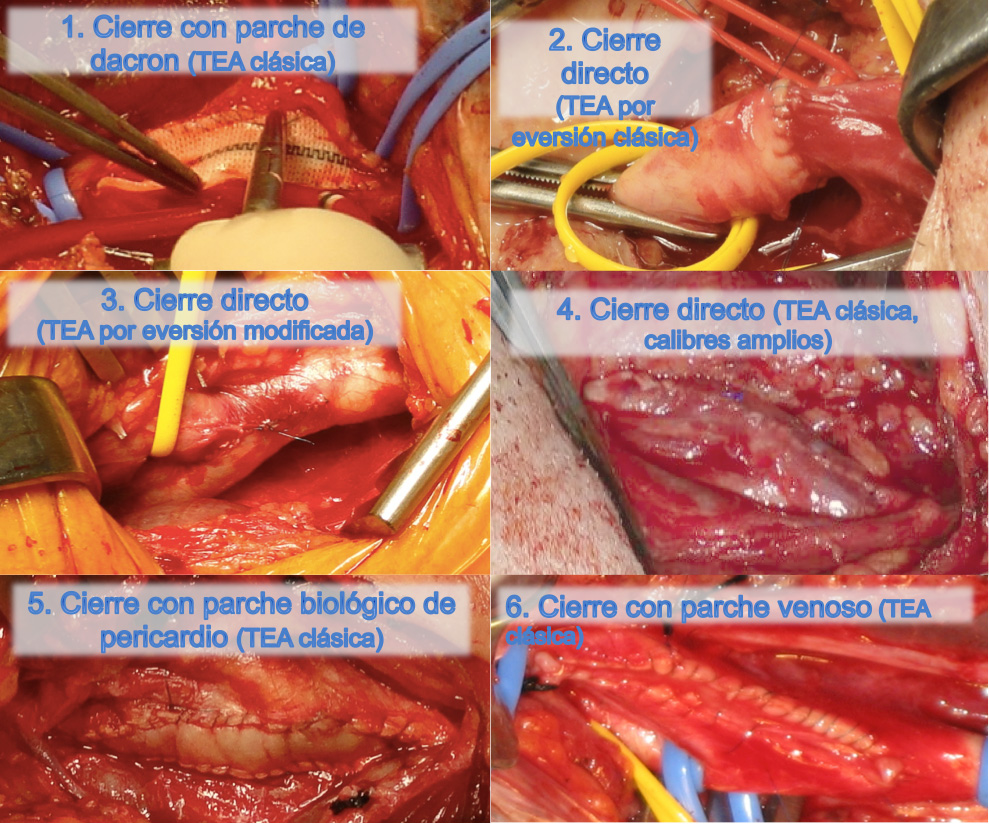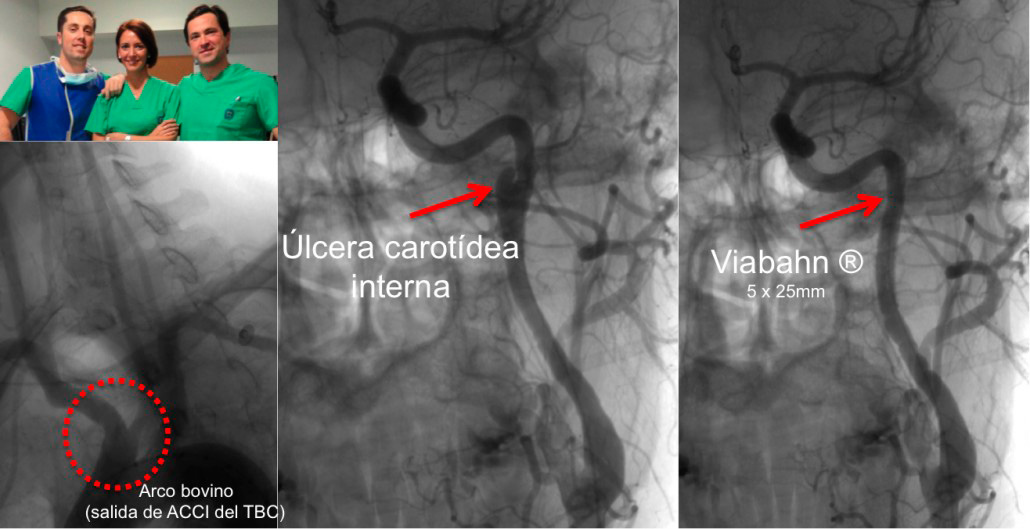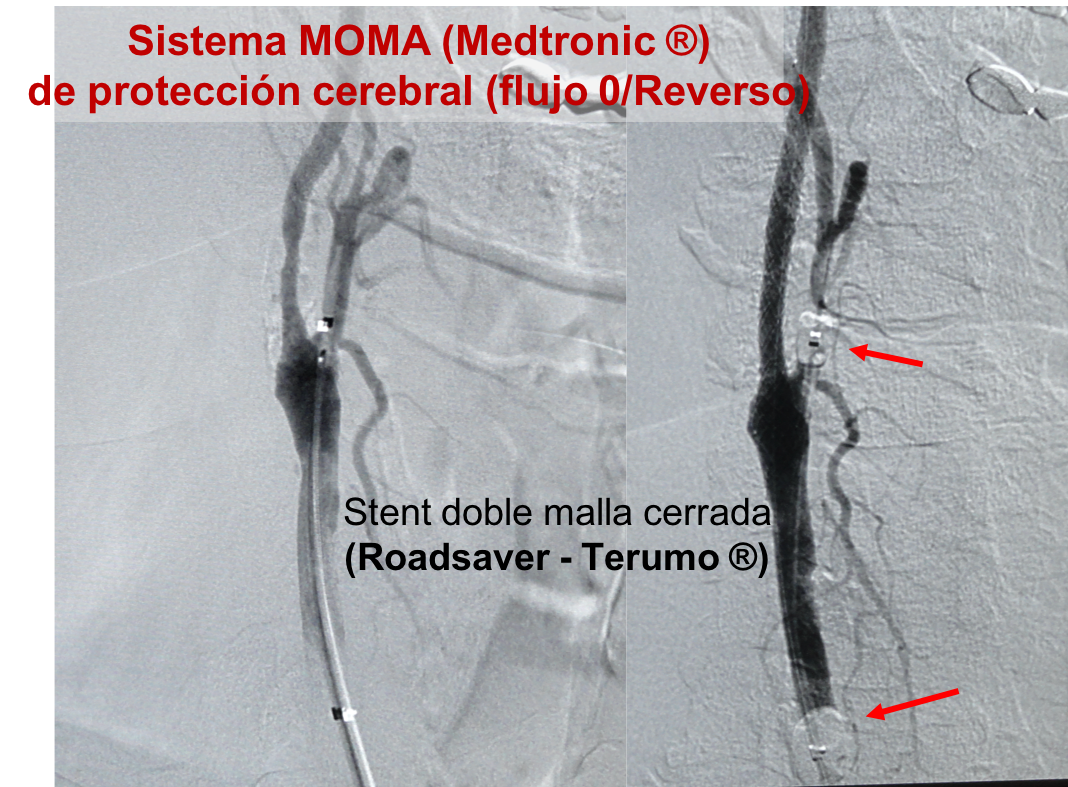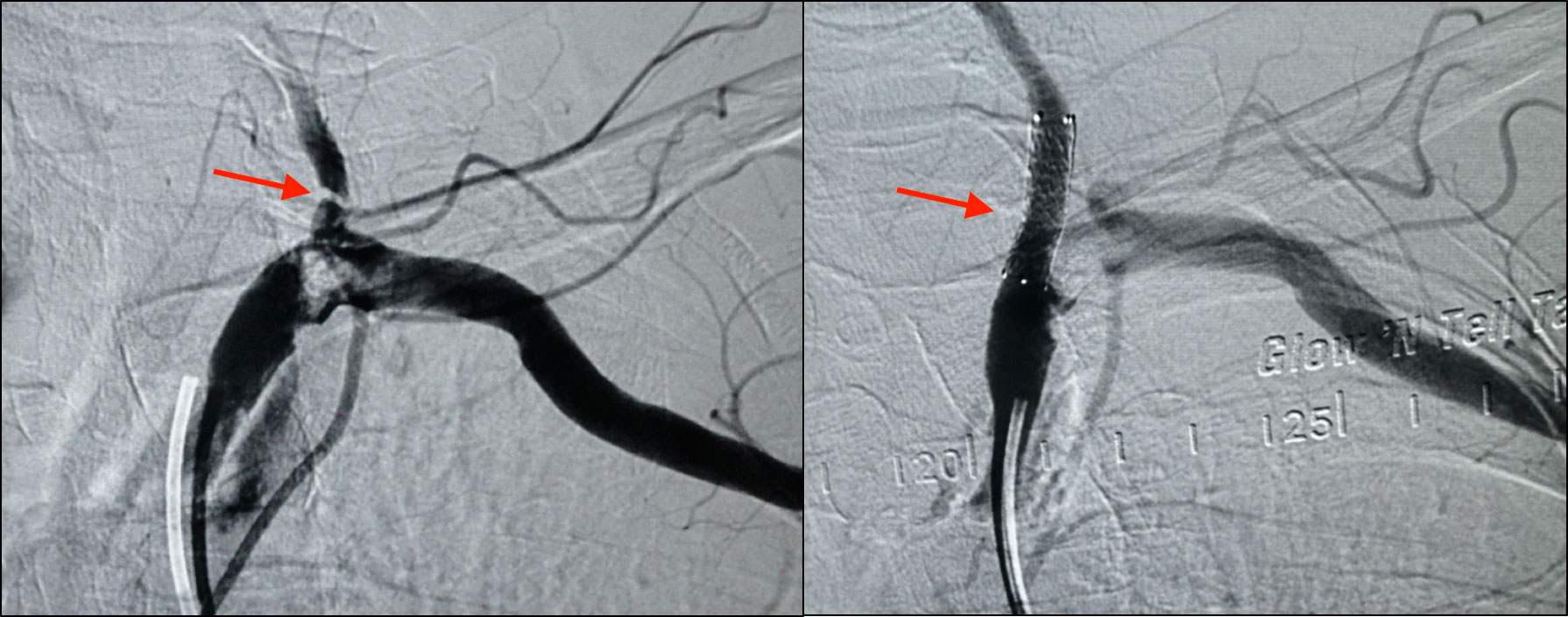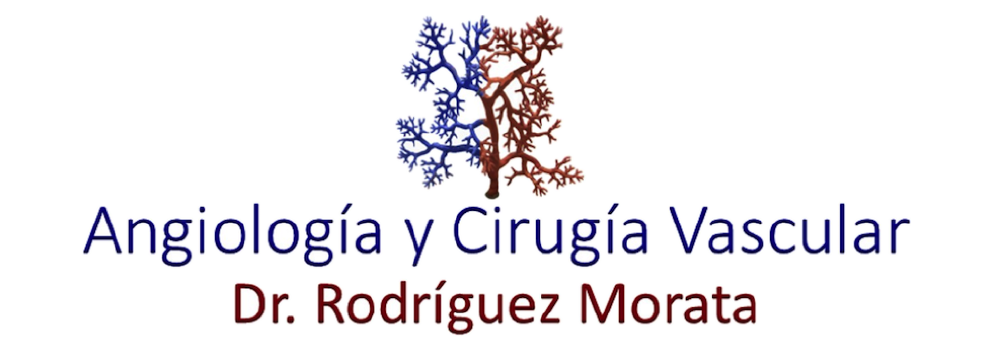This website uses cookies so that we can provide you with the best user experience possible. Cookie information is stored in your browser and performs functions such as recognising you when you return to our website and helping our team to understand which sections of the website you find most interesting and useful.
CAROTID STENOSIS – ISCHEMIC STROKE
Types of Carotid Closure
Carotid Ulceration
Flow reversal MOMA system
Endovascular treatment of vertebral artery
DESCRIPTION
WHAT IS a stroke and what is a carotid stenosis?
When Atherosclerosis obliterans affects carotid arteries (which supply the brain) we call it Cerebrovascular Disease and its most severe manifestation is the cerebral infarction (stroke).
A stroke is therefore, a severe brain affectation (encephalic) secondary to insufficient blood supply. This might be caused due to the lack of blood supply by a thrombosis (ischemic stroke) or either from rupture of an intracranial artery (hemorrhagic stroke).
There are multiple causes for an ischemic stroke, and can be mainly classified into four groups. The most common one is due to carotid stenoses by Atherosclerosis obliterans, which causes 35 % of the cerebral infarctions. The other causes are the ones with cardioembolic origin (25%), lacunar stroke (15%) and the rest are due to etiologic miscellaneous: adrenergic narcotics abuse, vasculitis, arterial dissection, etc.
Between 15% and 20% of the population older than 60 years of age may have some degree of carotid artery affectation, that is to say, certain degree of carotid stenosis.
Why can a carotid stenosis occur?
Just as in other clinical forms of Atherosclerosis obliterans, what occurs in carotid stenosis is a genuine premature aging of the walls of the arteries with the occurrence of atheromatous injuries in them, which grow progressively inwards until almost occluding them, if they do not receive specific treatment.
There are multiple factors which predispose to atherosclerosis. Some of them are classical and well known such as tobacco use, hypertension, diabetes, hypercholesterolemia; but there are other factors including the inherited ones (genetic) which are as well partly responsible and less known.
How is a carotid stenosis treated?
In the treatment of these arterial diseases the Angiology and Vascular Surgery specialist treats the patient globally. In some cases with the modification of lifestyle and drugs may be enough to stabilise and improve the disease if the carotid stenosis in not severe. In more advanced cases, some carotid injuries usually need endovascular surgical treatment (Angioplasty and Stent with brain protection) or open surgical treatment (carotid Endarterectomy).

